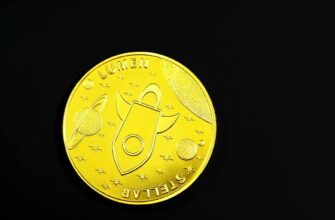Why Use a Hardware Wallet for NFTs?
Non-fungible tokens (NFTs) represent ownership of unique digital assets, from art to collectibles. Storing them securely is critical, as hackers often target hot wallets (software-based). Hardware wallets, or cold wallets, keep private keys offline, offering unmatched protection against cyber threats. For high-value NFT collectors, a hardware wallet is a must-have to safeguard investments.
Top 5 Best Hardware Wallets for NFTs in 2023
-
Ledger Nano X
Ledger’s flagship wallet supports 5,500+ cryptocurrencies and NFTs on Ethereum, Solana, and Polygon. Bluetooth connectivity and Ledger Live app integration make managing NFTs seamless.
Key Features:
- Bluetooth and USB-C connectivity
- Supports Ethereum, Solana, and Layer 2 networks
- Built-in secure element chip
Pros: User-friendly, multi-chain support. Cons: Pricier than competitors.
-
Trezor Model T
Trezor’s touchscreen wallet supports ERC-721 tokens (NFTs on Ethereum). Open-source firmware ensures transparency.
Key Features:
- Color touchscreen interface
- Integration with MetaMask and OpenSea
- Supports Shamir Backup
Pros: Robust security, easy recovery. Cons: Limited non-Ethereum NFT support.
-
SafePal S1
Affordable and air-gapped, SafePal S1 works with Binance Smart Chain and Ethereum NFTs. QR code-based transactions prevent hacking.
Key Features:
- Offline QR code signing
- Supports 20+ blockchains
- Budget-friendly
Pros: Cost-effective, intuitive. Cons: Smaller screen.
-
Ellipal Titan
Fully air-gapped and tamper-proof, Ellipal Titan supports Ethereum, Flow, and Tezos NFTs. Large touchscreen ideal for viewing digital art.
Key Features:
- 100% offline transactions
- 3.5-inch display
- Multi-currency compatibility
Pros: Premium security, sleek design. Cons: Bulky build.
-
Keystone Pro
Keystone Pro uses QR codes and a fingerprint scanner for security. Supports Ethereum, Polygon, and Avalanche NFTs.
Key Features:
- Fingerprint authentication
- Open-source firmware
- 4-inch touchscreen
Pros: Biometric security, large display. Cons: Higher learning curve.
How to Choose the Best Hardware Wallet for Your NFTs
- Compatibility: Ensure support for Ethereum, Solana, or other chains your NFTs use.
- Security: Look for secure element chips, air-gapped designs, and open-source firmware.
- Ease of Use: Prioritize intuitive interfaces and companion apps.
- Price: Balance budget with features (e.g., SafePal S1 for affordability, Ledger Nano X for premium needs).
FAQ: Best Hardware Wallet for NFTs
1. Can all hardware wallets store NFTs?
No. Ensure the wallet supports blockchains your NFTs are on (e.g., Ethereum).
2. What happens if my hardware wallet breaks?
Use your recovery phrase to restore assets on a new device.
3. Are hardware wallets hack-proof?
No device is 100% secure, but hardware wallets significantly reduce risks by keeping keys offline.
4. Can I transfer NFTs directly to a hardware wallet?
Yes. Send NFTs to your wallet’s public address via platforms like OpenSea.
5. Do I need multiple wallets for different blockchains?
No—most modern wallets (e.g., Ledger Nano X) support multiple chains.








